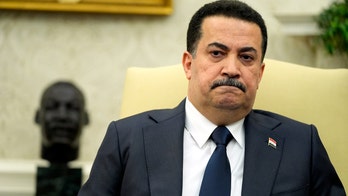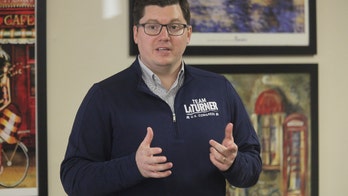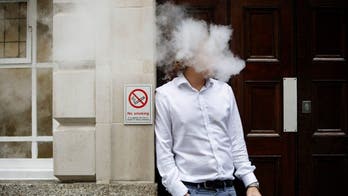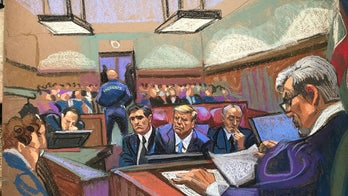President Obama faced some tough questions from a friendly audience in Mumbai, India Sunday and acknowledged that nearly two years into his term some "midcourse corrections" and adjustments are required.
After calling the U.S.-India relationship "indispensable" with "limitless potential", Mr. Obama fielded six questions from college students following remarks at St. Xavier College, and right out of the gate, the president had his work cut out for him.
Referencing the "shellacking" democrats received in last week's midterm election, one student asked what changes the president would make now that American voters have made it clear they want change.
The president acknowledged Americans voted their frustration over the still sluggish economy and told the audience of about 400 that the midterm elections back home reflected the "right, obligation and duty" of people to express their unhappiness by voting out many incumbents.
Mr. Obama said he'd still "stick to his principles" investing in education, infrastructure and clean energy, but noted he'd be required "to make mid-course corrections and adjustments."
While the president was vague about how and which of his positions or agenda may evolve, and admitted he didn't know how those "corrections" would play out, he deflected that burden to Capitol Hill.
"Over the next several months will be matter of me being in discussions with Republican party, which is not going to be controlling the House of Representative, and there are going to be some areas where we disagree, and hopefully there are going to be some where we agree."
The questions covered a range of topics - from spirituality to religious extremism to international affairs.
President Obama was highly criticized by the local press in India Saturday for not mentioning Pakistan and extremism during his remarks following his and Mrs. Obama's visit to the 26-11 Memorial commemorating the coordinated Mumbai attacks in November 2008 by a group of Pakistani militants. When one student challenged the president today on the U.S. support of Pakistan, Mr. Obama admitted it was a good question and one he anticipated.
The president argued Pakistan's strategic importance - despite the country's extremist elements - and said he thinks Pakistan's government understands the threat noting more Pakistanis have been killed by terrorists inside Pakistan than anywhere else.
"I think there is a growing recognition -- but it's something that doesn't happen overnight -- of what a profound problem this is," said Obama. "And so our feeling has been to be honest and forthright with Pakistan, to say we are your friend, this is a problem and we will help you, but the problem has to be addressed."
Mr. Obama went on to argue that despite the complex historical relationship between India and Pakistan, India benefits most from a strong Pakistan.
"I am absolutely convinced that the country that has the biggest stake in Pakistan's success is India. I think that if Pakistan is unstable, that's bad for India. If Pakistan is stable and prosperous, that's good," the president said, adding, "at a time when you're starting to succeed in incredible ways on the global economic stage, that you [don't] want the distraction of security instability in your region."
While Mr. Obama noted the U.S. cannot impose peace between India and Pakistan, he challenged the students on their country's future.
"Ultimately, India and Pakistan have to arrive at their own understandings in terms of how the relationship evolves," said the president. "My hope is that over time, trust develops between the two countries. That dialogue begins perhaps on less controversial issues, building up to more controversial issues and that over time there is a recognition that India and Pakistan can live side by side in peace and that both countries can prosper," Mr. Obama added. "That will not happen tomorrow."
A female student asked what jihad means to him, President Obama said jihad has a lot of meanings but added his respect for the Islamic faith. "Islam is one of the world's great religions," the president said, adding this great religion has been distorted by extremists.
"One of the challenges we face is how do we isolate those who have these distorted notions of religious war and reaffirm those who see faiths of all sorts," the president said before evoking the name of this country's most famous man, "that we can all treat each other with respect and mutual dignity, and that some of the universal principles that Gandhi referred to -- that those are what we're living up to, as we live in a nation or nations that have very diverse religious beliefs."
The president and first lady visited the Mahatma Gandhi museum, Mani Bhavan, when they arrived in Mumbai Saturday. The Obama's visited the library where Martin Luther King, Jr. signed a guest book in 1959, which the president found "pretty cool."
The president signed a more recent guest book. "I am filled with hope and inspiration as I have the privilege to visit this testament to Gandhi. He is a hero not just to India, but to the world."
On Monday the president and first lady will visit Raj Ghat, Gandhi's mausoleum in New Delhi.




